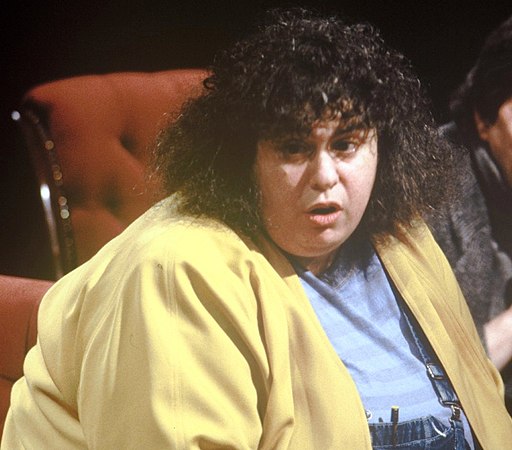 |
| Andrea Dworkin appearing on the television programme After Dark on 21 May 1988 |
I'm not married to Irigaray either by the way (she's like 85 years old). I just put it out there because (1) it ties together about 10 or 11 threads we've been talking about recently and (2) I'm fascinated that people were writing philosophy in 1991.
You've got to be a straight-up fool to bring that (essentialist) Koolaid to a grown (existentialist) woman's party. I'm guessing a Simone de Beauvoir would have smacked that into the cheap seats.
But it sounds like you're bringing in a lot of men to take her out. Are they just rigidly trying to recapitulate their shriveled old male projects in themselves (excuse my French)? Or is it all an even playing field and they just happen to be men? I somehow happened across this quote in recent weeks, from even more radical feminist, Andrea Dworkin:
We think that we live in a heterosexual society because most men are fixated on women as sexual objects; but, in fact, we live in a homosexual society because all credible transactions of power, authority, and authenticity take place among men; all transactions based on equity and individuality take place among men. Men are real; therefore, all real relationship is between men; all real communication is between men; all real reciprocity is between men; all real mutuality is between men.As I look at the all-male, all-white AP English reading list that has been bequeathed to me by my two female predecessors, I sometimes wonder about this existential boys' club with its rigidly white male philosophical subject/tragic hero suffering against the backdrop of nonwhite, non-male minor characters. I like this Dworkin quote too:
Feminist art is not some tiny creek running off the great river of real art. It is not some crack in an otherwise flawless stone. It is, quite spectacularly I think, art which is not based on the subjugation of one half of the species. It is art which will take the great human themes--love, death, heroism, suffering, history itself--and render them fully human. It may also, though perhaps our imaginations are so mutilated now that we are incapable even of the ambition, introduce a new theme, one as great and as rich as those others--should we call it "joy"?Although I'm way beyond my depth now, I see some essentialism creeping into these articulations in the phrases "render them fully human" and "introduce a new theme...'joy.'" And I think I know exactly what she is talking about here too, but I will likely sound like an a-hole trying to express my understanding of what she means, because elsewhere she seems to express herself in very non-essentialist terms.
But I have to admit, I see how this idea that Nietzsche's eternal return could be seen as striving toward a fundamentally sterile, asexual, or even--as Dworkin might assert--homosexual recapitulation of oneself and one's projects.
No comments:
Post a Comment